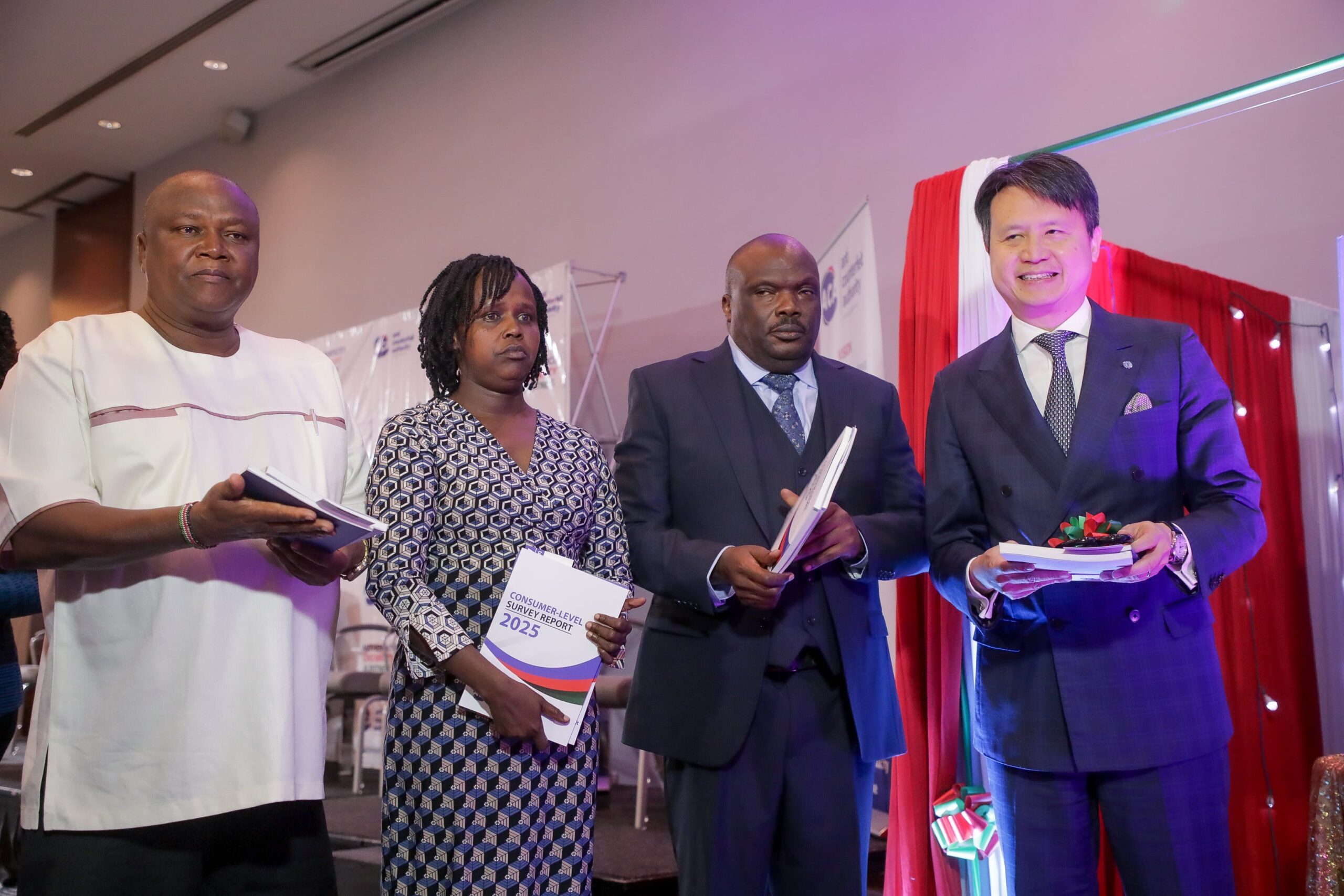
Stakeholders call for all-out war on counterfeits as Kenya loses Sh153bn annually » Capital News
NAIROBI, Kenya, Jun 8 – Kenya has been losing at least Sh153 billion annually through proliferation of counterfeit good, according to a consumer survey report released by the Anti-Counterfeit Authority (ACA).
The Consumer-Level Survey Report 2025, and the Firm Level Survey Report 2025, released by ACA on Friday, during the event to mark the World Anti-Counterfeit Day held in a Nairobi hotel, said the massive loss emanates from among other gaps, tax evasion, disruption of consumption of genuine goods, consumer ignorance in detecting fakes, among other loose ends.
According to the report, awareness of counterfeit goods among Kenyans has increased significantly in the past four years, with 83 percent of those sampled now detect counterfeit products—showing a 28.05 per cent increase from 2021 and 65.48 in 2024.
The ACA, in conjunction with the Ministry of Investments, Trade and Industry and the World Intellectual Property Organisation (WIPO), converged at the international event to highlight key actions to curb trade in counterfeits.
Policy-makers, academics, NGO technocrats and other stakeholders were addressed by the WIPO Director General Mr Daren who called on concerted efforts and higher convergence by all stakeholders if the war against counterfeits is to be won.
Mr Daren noted that Kenya had made a great impact globally by playing a leading role in the region in the fight counter fakes.
“Authenticity is a big plus in winning consumer confidence and attracting big global investors who like basking in atmosphere where counterfeits are aggressively countered,” said Mr Daren.
Anti-Counterfeit Authority Executive Director Dr Robi Mbugua said: “Anti-Counterfeit is a major economic and public health threat, costing Kenya an estimated nSh153 billion annually across key sectors, including health, agriculture, construction and electronics.”
Dr Mbugua described counterfeiting both as a theft and a public health crisis, a barrier to industrial growth and a serious threat to investor confidence.
The report noted, “The study was conducted to assess the awareness, experiences, and attitudes of consumers towards counterfeit goods in Kenya.”
Still, even with the growth in awareness, many consumers are not able to verify product authenticity, says the report.
“While general awareness has improved, many consumers still struggle to distinguish between genuine and fake products,” the report says indicating that awareness does not always match better purchasing decisions.
The survey covered eight counties – Nairobi, Busia, Kisumu, Mombasa, Garissa, Machakos, Nyeri, and Nakuru – reflecting a wide representation of consumer diversity.
The Report recommends that the anti-counterfeit authority introduces a requirement for importers to declare their shipments from the point of origin.
Dr Robi Mbugua noted: “This is not just about lost revenue. It is about lives, jobs, and the integrity of our markets, especially in the case of counterfeit medical products, which can become a ‘death sentence’.”
The study underscores the wider impact of counterfeit goods, noting their threat to consumer health and the viability of legitimate businesses.
Findings from the report revealed that the bulk of counterfeit transactions, 60 percent, are illicitly conducted by informal street vendors, while 31.27 percent are conducted online. Jumia and Facebook emerged as the top platforms where counterfeit items are being distributed.
“Street vendors still dominate, but the tide is turning. The battleground is now the online market place,” states the report.
It noted that without reallocating efforts and resources to the online domain, the country risks losing the fight against counterfeits before truly understanding its digital dimension.
Source markets in the Far East remain key suppliers of both online and offline counterfeit goods. However, the report also identified Kenya and Uganda as significant contributors to the offline counterfeit trade, suggesting that domestic production and distribution are part of the challenge.
Another challenge is posed by people who ignorantly buy counterfeit products, with affordability identified as the primary motivator.
“Kenya is a country of affordability. “People often buy what is available and affordable, even if it is not authentic,” It states.
To address the issue effectively, the study advocates for evidence-based policymaking and stronger consumer education, particularly targeting digital platforms.
“The way forward must be scientific, targeted, and data-driven. We cannot fight a dynamic problem like counterfeiting with outdated tools,” it emphasises.